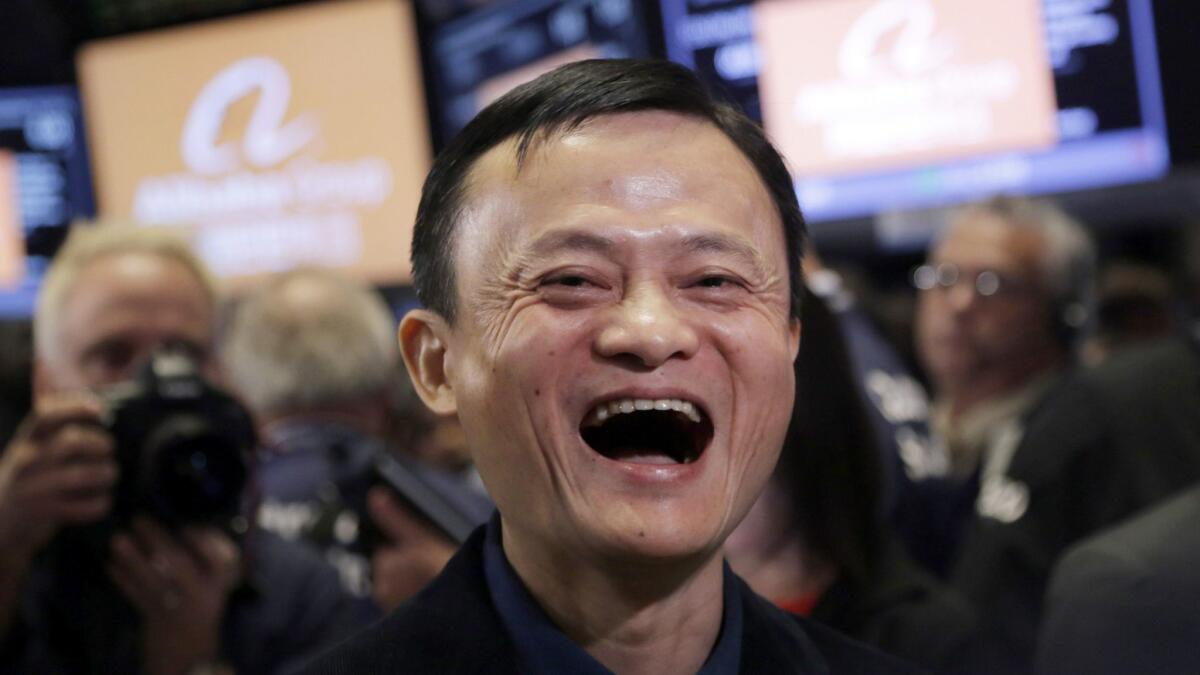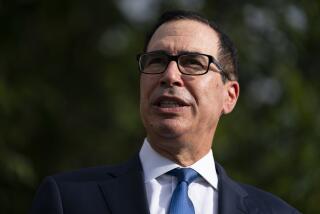Alibaba weighing $20-billion Hong Kong offering after smash U.S. IPO

Alibaba Group Holding is considering raising $20 billion via a second listing in Hong Kong after a record-breaking 2014 New York debut, people with knowledge of the matter said — a mega-deal that will bring China’s largest company closer to friendlier investors at home as U.S. tensions escalate.
The e-commerce giant is working with financial advisors on the planned offering, the people said, asking not to be identified because the information is private. Alibaba aims to file a listing application in Hong Kong confidentially as early as the second half of 2019, the people said. A second listing is intended to diversify its funding channels and boost liquidity, but the plans are preliminary and could change.
The monster share sale comes as Chinese companies grapple with rising tensions between Beijing and Washington, and an increasingly hostile U.S. government that’s slapped export curbs on Huawei Technologies Co. and is considering similar restrictions against a clutch of artificial intelligence firms.
A Hong Kong offering may have the benefit of tightening Alibaba’s ties with Beijing, in addition to the money raised. “A large part of it is politics, especially because of the timing,” said David Dai, a Hong Kong-based analyst at Bernstein. “Another part of it is potentially better valuation in the Hong Kong market.”
Alibaba declined to comment.
A successful deal will rival AIA Group Ltd.’s 2010 IPO as Hong Kong’s largest-ever share sale, a triumph for a city that’s ceded many of China’s largest corporations to U.S. exchanges. The Asian life insurer, owned by New York’s American International Group, raised $17.8 billion.
Alibaba raised $25 billion in New York in the world’s largest initial public offering after struggling to persuade Hong Kong regulators to approve its unique structure, under which a coterie of partners decide board membership.
Hong Kong’s exchange finally relaxed restrictions and granted the green light for dual-share classes last year, allowing internet services giant Meituan Dianping and smartphone maker Xiaomi Corp. the right to issue stock with different voting rights.
In New York, Alibaba’s shares have slid more than 21% over the year to Friday’s close, but at about $400 billion it still counts among the world’s 10 largest publicly traded corporations and would be a feather in Hong Kong’s cap.
Like other tech giants, Alibaba is said to have considered a Chinese depositary receipt issuance last year when Beijing touted the idea. That would have given mainland investors a direct opportunity to hold the company’s shares, though Alibaba would not have been able to raise as much capital. But CDRs have since been held up by regulatory complexities.
Alibaba, which had about $30 billion of cash as of March, has ridden a surge in Chinese online commerce alongside an increasingly affluent middle class. Its success even forced Amazon into a rare retreat when the Seattle-based company announced last month it was shutting down its Chinese marketplace, though it is continuing to operate other online businesses in the country.
But Alibaba is struggling to sustain growth as the world’s No. 2 economy slows, and is waging a costly war of subsidies with Meituan in food delivery and travel. A Hong Kong listing may divert some investor cash away from rivals such as Meituan, or even giant WeChat-operator Tencent Holdings Ltd.
Although China has supplied some of the world’s biggest initial public offerings over the last 12 months, it’s also been home to major disappointments. Xiaomi — the first firm to list with a weighted-voting-rights structure in Hong Kong — has tumbled about 40% since its July debut. This year, games-streaming giant Douyu International Holdings Ltd. postponed its U.S. IPO launch following market jitters over a trade war.
Generally, Alibaba’s mega-offering is likely to squeeze liquidity in Hong Kong, pushing up borrowing rates and strengthening the local dollar.
“They’ve always wanted to list in Hong Kong,” said John Choi, a Hong Kong-based analyst at Daiwa Capital Markets. “Alibaba is doing a lot of investments across different sectors and business, so the capital could help.”
Times staff writer Laurence Darmiento contributed to this article.
More to Read
Inside the business of entertainment
The Wide Shot brings you news, analysis and insights on everything from streaming wars to production — and what it all means for the future.
You may occasionally receive promotional content from the Los Angeles Times.










